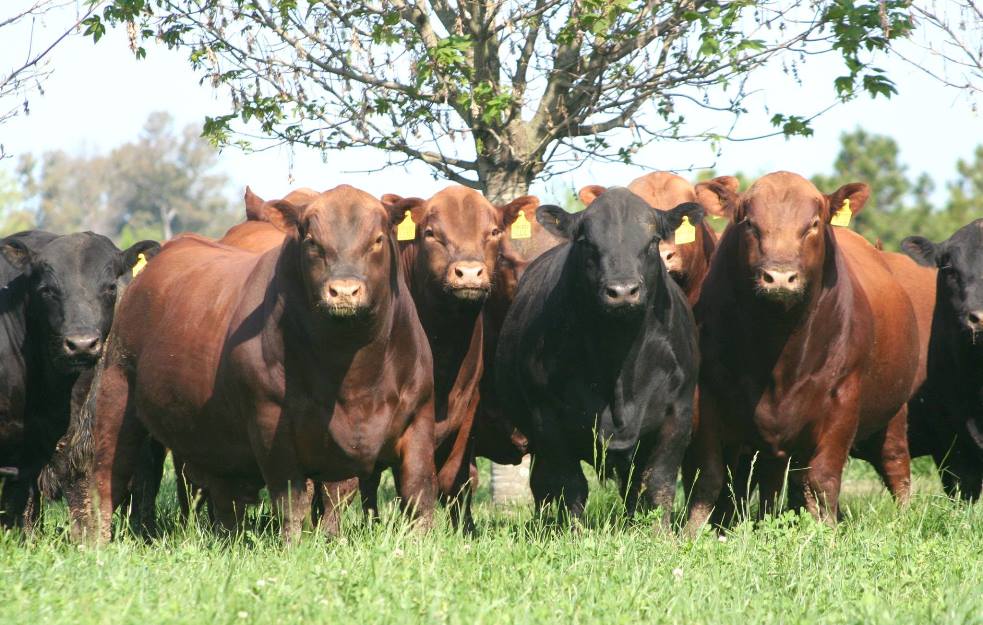
THE BreedPlan system used for genetic evaluation of beef cattle in Australia and many overseas countries continues to be a world-class model, because it is the only fully multi-trait model used for beef cattle in the world.
Most recently it became the first full multi-trait beef genetics model globally to incorporate genomic test results using the ‘single-step’ approach. It is also claimed to be the first across-country single step analysis.
Australia is unique in having a single beef genetics analytical model used across all beef breeds.
However the model used to deliver BreedPlan technology to the beef industry in Australia has been the focus of ongoing criticism from a small segment of seedstock producers for a prolonged period.
The current BreedPlan delivery model includes the Animal Genetics Breeding Unit (AGBU) as the research and development arm, and the Agricultural Business Research Institute (ABRI) delivering the genetic analysis of breed society databases of pedigrees and performance measures including genomic test results. In addition, genetic analyses are provided for individual breeders such as corporate company herds.
The core BreedPlan software is licenced to ABRI by its owners, Meat and Livestock Australia, the University of New England and the NSW Department of Primary Industry.
Critics of the current beef delivery model would much prefer the Sheep Genetics model of genetic evaluation delivery model which does not involve breed societies. Sheep Genetics is owned and underwritten by MLA, which contracts AGBU to provide a series of multi-breed genetic evaluations for the meat sheep, maternal breeds and the Merino industry.
The analytical model used for genetic analysis of the various sheep groups is based on the model developed by AGBU for the beef industry, allowing new developments such as single-step evaluation to be incorporated into both the beef and sheep analyses.
In response to the ongoing criticism of the current delivery model for beef genetic evaluations, the owners of the core BreedPlan intellectual property commissioned consulting firm, Australian Venture Consultants to conduct a review of the framework though which that intellectual property has been commercialised and the value chain that delivers BreedPlan to market.
Among the concerns expressed were that:
- The penetration of BreedPlan across the industry is plateauing or even declining in some key breeds
- It is not being used with adequate rigour by many users
- It is becoming increasingly expensive
- Service quality is decreasing, and
- New product innovation is too slow.
The consultant’s report confirmed that measured by the number of weaning weights submitted by all breeds, that the use of BreedPlan has plateaued over the last 13 years, at around 120,000 weaning weights per year. But the report also identifies a dichotomy, with some breeds increasing their usage and others declining in their use.
The report considered a number of options for a way forward including a radical option of removing the license for the core BreedPlan analytical software from ABRI and moving to a Sheep Genetics model, exclusive of breed societies, under the management of MLA.
However it recommended that the most pragmatic way forward was to continue with the current delivery model with a revamped licence agreement.
The outcome from the report is that a new software license agreement for BreedPlan has been written, which will ensure greater accessibility for seedstock producers and improve transparency and accountability in the delivery system.

MLA’s general manager for producer consultation & adoption, Michael Crowley
MLA general manager for producer consultation & adoption, Michael Crowley, said following a commercialisation review, a number of significant changes had been made to the BreedPlan software license agreement, as part of a reinvigoration strategy for the program.
“BreedPlan has been available to the Australian beef cattle industry for more than 30 years and has made a significant contribution to genetic improvement across the Australian beef cattle industry,” Mr Crowley said.
“However, there are a number of opportunities to improve BreedPlan commercialisation that have been identified through extensive stakeholder consultation, that will deliver greater program innovation, improve future delivery of services, drive greater adoption and enhance the value proposition of genetics to increase the rates of genetic gain,” he said.
The previous BreedPlan license was in place for many years and in line with the commercialisation review recommendations, the license has now been reviewed as part of the broader BreedPlan reinvigoration strategy.
“The program owners have been working to develop a new license agreement for the BreedPlan analytical software and have agreed that in order to maintain a single source of truth for breeding values, a single licensee is required,” Mr Crowley said.
“ABRI has been selected as the licensee for the BreedPlan analytical software; however, it is a non-exclusive, performance-based license ensuring a high quality and uninterrupted service for the industry.”
The agreement is based on ABRI meeting a range of KPIs and is aimed at making BreedPlan more accessible to all breeders or groups of breeders. It also opens up opportunities for new commercial breeding value delivery models to evolve over time.
Mr Crowley said the changes to the BreedPlan license were the first step in reinvigorating the program, as outlined in the commercialisation review conducted by Russell Barnett from Australian Venture Consultants.
“ABRI’s clients are typically beef cattle breed societies who effectively retail to their clients, the stud breeders,” Mr Crowley said.
“ABRI has commercial contracts in place with these clients that will be able to continue as well as creating the opportunity for future delivery models to evolve over time,” he said.
“The BreedPlan owners will continue to work in good faith with ABRI to ensure a successful transition to the new license. ABRI should be congratulated on the pragmatic and professional approach it has taken to driving positive change for the benefit of the industry,” he said.

MLA deserve praise for efforts to further improve Breedplan. Details of the new licence agreement are sketchy – it is hoped that this agreement will be accompanied by measures to broaden, strengthen and increase knowledge of Breedplan, as well as to grow faith in the integrity of the tool, among commercial producers.
And not before time. It took the Performance Herds Australia consortium of Shorthorn breeders years (and the threat of legal action) to overcome the cosy relationship between the Society and Breedplan and force ABRI to evaluate 3,000 calves registered with an independent organisation annually.
Am I correctly reading between the lines that it will soon be possible for a large producer or group of breeders of similar cross-bred cattle to run their cattle and their selected EBVs through BreedPlan, outside of the breed societies? If so, it’s a positive move.